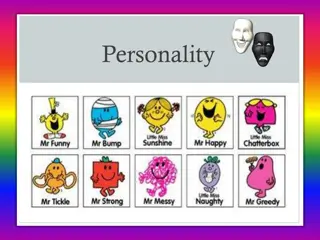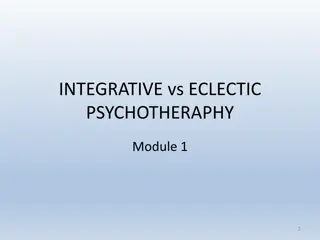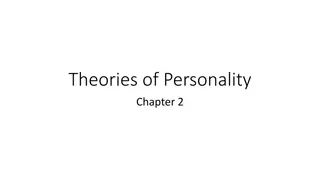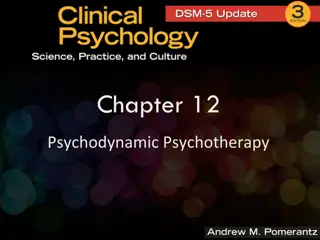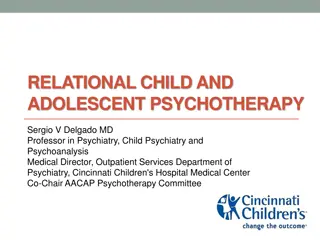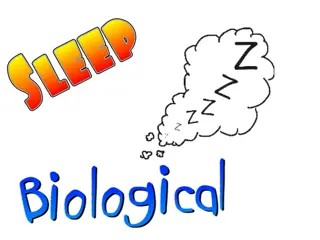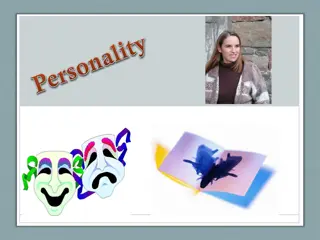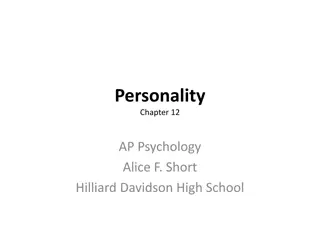Understanding Mental Deficiency: Causes and Classifications
Mental deficiency, also known as intellectual disability, is characterized by significantly below-average intellectual functioning before the age of 18, along with limitations in adaptive behaviors. It is measured using standardized IQ tests, with classifications ranging from profound to mild. Two m
3 views • 65 slides
Understanding Personality: Theories, Types, and Assessment
Exploring the intricate world of personality, this comprehensive guide delves into major theories of personality development, assessment methods, cultural influences, and key contributors. Discover the different types of personalities, including Type A and Type B, and unravel the complexities of psy
1 views • 96 slides
Psychological Theories of Criminality: Understanding the Roots
Psychological theories of criminality delve into the association between intelligence, personality, learning, and criminal behavior. Major theories include Psychodynamic Theory by Freud, Behavioral Theory by Bandura, and Cognitive Theory by Kohlberg. These theories explore how unconscious mental pro
1 views • 20 slides
Theories of Causation in Psychological and Social Sciences
Overview of theories of causation categorized into psychological, social psychological, and sociological perspectives. Psychological theories focus on instinctive, biological, and psychological qualities of abusers, including Attachment Theory, Psychodynamic Theory, Social Learning Theory, and Situa
0 views • 15 slides
Understanding Integrative and Eclectic Psychotherapy Approaches
Integrative Psychotherapy emphasizes treating individuals holistically across affective, behavioral, cognitive, and spiritual dimensions. It incorporates various theoretical perspectives like psychodynamic, client-centered, behaviorist, and cognitive therapies. Common factors in psychotherapy play a
3 views • 16 slides
Overview of Freud's Psychodynamic Theories of Personality
This content delves into Freud's psychodynamic theories of personality, highlighting the ID, Ego, and Superego as key components. It discusses how early childhood experiences shape adult personality, the functions of each structure, and how they interact to influence behavior. The concept of defense
0 views • 34 slides
Understanding Psychodynamic Psychotherapy: Unconscious Exploration
Psychodynamic psychotherapy focuses on making the unconscious conscious through techniques like free association, dream analysis, and defense mechanisms. Clients gain insight into hidden thoughts and emotions, uncovering unconscious wishes and addressing resistance in therapy sessions.
0 views • 17 slides
Understanding Relational Child and Adolescent Psychotherapy
Explore the concepts of relational child and adolescent psychotherapy involving attachment patterns, intersubjectivity, corrective emotional experiences, and the role of the relational psychodynamic psychotherapist in providing corrective emotional experiences essential for the child's development.
0 views • 25 slides
Exploring Sleep, Dreams, Sleeping Disorders, and Memory: Different Approaches and Key Studies
This informative content delves into the topics of sleep, dreams, sleeping disorders, and memory, examining the Biological, Cognitive, and Psychodynamic approaches. Key studies and explanations are provided for each, including insights into biological rhythms, brain activity during sleep, and the ro
0 views • 34 slides
Understanding Personality: Theories and Perspectives
Personality is a dynamic psychological concept shaped by internal needs, cognitive processes, and external influences. Psychodynamic and humanistic theories offer insights into different aspects of personality, while clinical and social-cognitive perspectives contribute to our understanding. Freud's
0 views • 26 slides
Understanding Personality Through Psychodynamic Perspectives
Personality is a complex pattern of enduring thoughts, emotions, and behaviors that shape how individuals adapt to the world. The psychodynamic perspective, pioneered by Sigmund Freud, delves into the unconscious mind and early experiences to understand personality development. Freud, known as the f
0 views • 64 slides
Understanding Psychodynamic Therapy: Unveiling Emotional Patterns and Self-Insight
Delve into the world of psychodynamic therapy, where mental and emotional processes take precedence over behavior. Rooted in Freudian theory, this therapeutic approach aims to uncover unconscious patterns, childhood influences, and internal conflicts to foster self-awareness and personal growth. Thr
0 views • 15 slides

